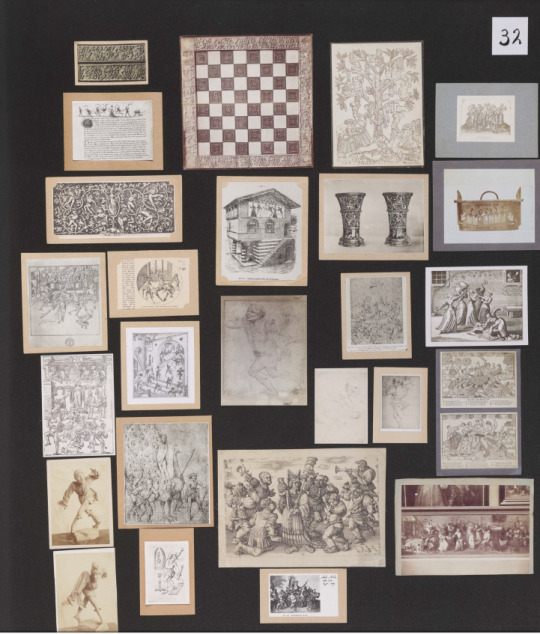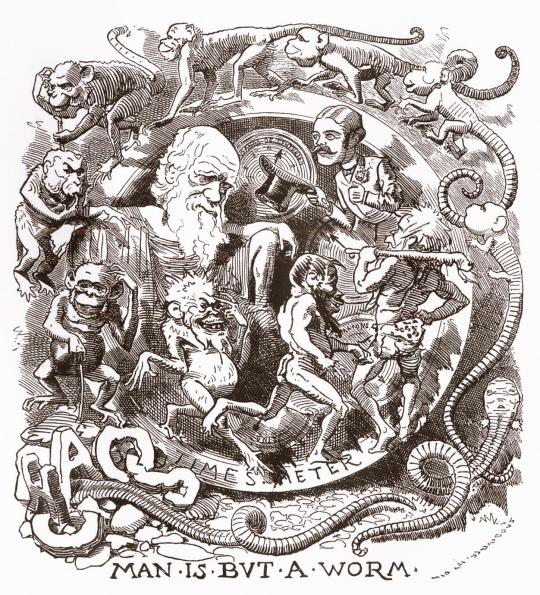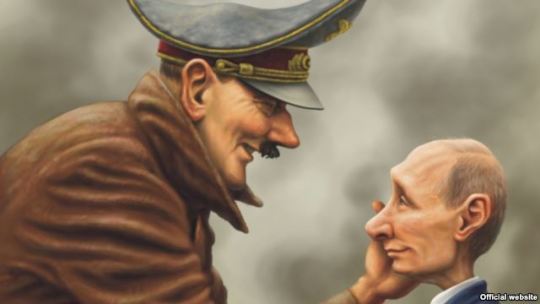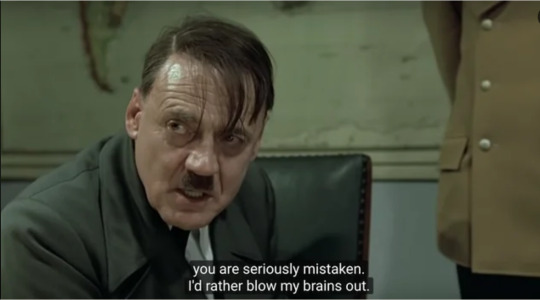#Einfühlung
Explore tagged Tumblr posts
Text

AUF BEWUSST GEÄUSSERTE VERLETZBARKEIT WIRD NUR NOCH GESCHISSEN !!!
"ERKLÄRUNGS-NOT" / RECHTFERTIGUNGS-NOT =
Der Friedvolle muß sich vor den Gewaltsamen & Gewalttätigen rechtfertigen,... für seine Friedfertigkeit,... aber er wird NICHT verstanden !!! 8-O
Die Gewaltsamen & Gewalttätigen müssen sich NICHT für ihre Gewalt rechtfertigen !!! IHNEN gibt man ganz allgemeines, uneingeschränktes Verständnis ! 8-O
Der Verantwortungsvolle muß sich vor den Verantwortungslosen & Unverantwortlichen rechtfertigen,... für seine Eigenverantwortlichkeit,... aber er wird NICHT verstanden !!! 8-O
Die Unverantwortlichen & Verantwortungslosen müssen sich NICHT für ihre Verantwortungslosigkeit/Unverantwortlichkeit rechtfertigen !!! IHNEN gibt man ganz allgemeines, uneingeschränktes Verständnis ! 8-O
Der Ehrliche muß sich vor den Unehrlichen & Verlogenen rechtfertigen,... für seine Ehrlichkeit,... aber er wird NICHT verstanden !!! 8-O
Die Unehrlichen & Verlogenen müssen sich NICHT für ihre Unehrlichkeit und ihre Lügen rechtfertigen !!! IHNEN gibt man ganz allgemeines, uneingeschränktes Verständnis ! 8-O
Der Faire muß sich vor den Unfairen rechtfertigen,... für seine Fairness,... aber er wird NICHT verstanden !!! 8-O
Die Unfairen müssen sich NICHT für ihre Unfairness rechtfertigen !!! IHNEN gibt man ganz allgemeines, uneingeschränktes Verständnis ! 8-O
Der Respektvolle muß sich vor den Respektlosen rechtfertigen,... für seinen Respekt,... aber er wird NICHT verstanden !!! 8-O
Die Respektlosen müssen sich NICHT für ihre Respektlosigkeit rechtfertigen !!! IHNEN gibt man ganz allgemeines, uneingeschränktes Verständnis ! 8-O
Der Achtsame muß sich vor den Unachtsamen & Achtlosen rechtfertigen,... für seine Achtsamkeit & Achtung,... aber er wird NICHT verstanden !!! 8-O
Die Unachtsamen & Achtlosen müssen sich NICHT für ihre Achtlosigkeit rechtfertigen !!! IHNEN gibt man ganz allgemeines, uneingeschränktes Verständnis ! 8-O
Der selbstverantwortlich Gesunde muß sich vor den selbstverschuldeten Kranken & Ungesunden rechtfertigen,... für seine Gesundheit,... aber er wird NICHT verstanden !!! 8-O
Die selbstverantwortet Kranken & Ungesunden müssen sich NICHT für ihre herbeigeführte Krankheit & Ungesundheit rechtfertigen !!! IHNEN gibt man ganz allgemeines, uneingeschränktes Verständnis ! 8-O
Der Bewußte muß sich vor den Unbewußten rechtfertigen,... für seine Bewußtheit,... aber er wird NICHT verstanden !!! 8-O
Die Unbewußten müssen sich NICHT für ihre Unbewußtheit rechtfertigen !!! IHNEN gibt man ganz allgemeines, uneingeschränktes Verständnis ! 8-O
Der Aufrichtige muß sich vor den Unaufrichtigen rechtfertigen,... für seine Aufrichtigkeit,... aber er wird NICHT verstanden !!! 8-O
Die Unaufrichtigen müssen sich NICHT für ihre Unaufrichtigkeit rechtfertigen !!! IHNEN gibt man ganz allgemeines, uneingeschränktes Verständnis ! 8-O
Der Achtungsvolle/Achtsame muß sich vor den Achtlosen rechtfertigen,... für seine Achtung,... aber er wird NICHT verstanden !!! 8-O
Die Achtlosen müssen sich NICHT für ihre Achtlosigkeit rechtfertigen !!! IHNEN gibt man ganz allgemeines, uneingeschränktes Verständnis ! 8-O
Der Liebevolle muß sich vor den Lieblosen rechtfertigen,... für seine Liebe,... aber er wird NICHT verstanden !!! 8-O
Die Lieblosen müssen sich NICHT für ihre Lieblosigkeit rechtfertigen !!! IHNEN gibt man ganz allgemeines, uneingeschränktes Verständnis ! 8-O
-------------------------------------------------------
geleitetes Entdecken von erlernter Hilflosigkeit:
- Wir haben gelernt, Worte zu benutzen, um Verständigung, Austausch und Mitteilung zu VERHINDERN.
- Wir haben gelernt, Schaffen als “Malochen” zu mißverstehen, und um zu arbeiten, um mit uns selbst UNzufrieden zu sein, um die Wertschätzung unseres Tuns & Schaffens zu ENT-werten.
- Wir haben gelernt, Verantwortung als “Haftung” zu mißverstehen, und Gefühle zu leugnen, um echte Verantwortung ABZUSCHIEBEN.
- Wir haben gelernt, Reue & Bedauern als “Schuld”, “Sühne”, “Buße” & “Ent-schuldigung” zu mißverstehen, um durch Scham das Ausleben von Traurigkeit zu VERHINDERN.
-Wir haben gelernt, Mitgefühl als “Mitleid” zu mißverstehen, und uns in “Sympathie” zu üben, um von authentischer, präsenter Einfühlung ABZULENKEN.
- Wir haben gelernt, Lernen als leidvolles, mühseliges “Nachbeten” & “Auswendiglernen” zu mißverstehen, und Kinder mit Gewalt zu indoktrinieren und irritieren, um echtes Lernen aus Freude, Neugier und Interesse AUSZUKLAMMERN.
- Wir haben gelernt, eigenverantwortliches Wagnis als “glorreiche” Waghalsigkeit zu mißverstehen, und durch Rausch von unseren eigenen Ängsten ABZULENKEN.
- Wir haben gelernt, Selbstachtung als “Stolz” zu mißverstehen & gewaltsame Bedingungen für unseren Selbstwert zu akzeptieren, um echte Selbständigkeit, Mündigkeit, Unabhängigkeit & seelische Stärke zu VERUNMÖGLICHEN.
- Wir haben gelernt, Würde und Respekt als “Ehre” und Furcht zu mißverstehen, und Kniefälligkeit und Bücklingtum zu kultivieren, um echte persönliche Wertschätzung durch Hierarchie zu ERSETZEN.
- Wir haben gelernt, Liebemachen als “Sex” zu mißverstehen, und körperliche Berührungen SO zu verwenden, daß sie Liebe & Nähe VERMEIDEN.
- Wir haben gelernt, Bedürfnisse als “Rechte” zu mißverstehen & uns für eine “Mehrheit” zusammenzuballen & zusammenzurotten, um Nöte & Bedürftigkeiten als “Rechtsfrage” oder als “Politikum” zu ENTWERTEN.
----------------------------------------------------
Unter den BLINDEN ist der EINÄUGIGE
langfristig VÖLLIG ÜBERFORDERT !!!
8-O
WACHT ENDLICH AUF !!!
------------------------------------------------------------------------------
Among the BLIND, the One-Eyed is hopelessly OVERBURDENED in long-term !!!
8-O
WAKE UP FINALLY !!!
------------------------------------------------------------------------------
Chez les AVEUGLES, le BORGNE est désespérément SURCHARGÉ à long terme !!!
8-O
RÉVEILLEZ-VOUS ENFIN !!!
----------------------------------------------------
#Gewalt#Verantwortung#Eigenverantwortung#Eigenverantwortlichkeit#Verantwortlichkeit#Rechtfertigung#rechtfertigen#Erklärungsnot#Verständnis#Fairness#fair#unfair#Unfairness#Achtsamkeit#achtsam#gewalttätig#Gewalttätigkeit#gewaltfreie Kommunikation#gfK#Einfühlung#Mitgefühl#gewaltlos#Gewaltlosigkeit#Psychose#psychotisch#Psychosen#Beweislast#Beweisschuld#Rechtfertigungsnot#Bringschuld
0 notes
Text
Sich hineinversetzen. Von Empathie, Spiegelneuronen und der Goldenen Regel
Wer erinnert sich nicht? An das legendäre ZDF-Interview von Boris Büchler mit Per Mertesacker nach dem WM-Achtelfinale Deutschland gegen Algerien (2:1 n.V.) am 30. Juni 2014, also vor zehn Jahren. Der Reporter Büchler nimmt den sichtlich erschöpften Spieler Mertesacker hart ran, sucht trotz des Sieges nach Kritikpunkten. Mertesacker reagiert gereizt, Büchler lässt nicht locker.
Das Ganze schaukelt sich hoch, die Kontrahenten überbieten sich in Sachen Sticheleien und Pampigkeit, lassen Fingerspitzengefühl und Professionalität vermissen. Gerade deswegen ist dieser Schlagabtausch so legendär: Boris Büchler und Per Mertesacker sind offen und ehrlich. Ein Interview ohne Filter.
Danach versuchen Moderator Oliver Welke und Experte Oliver Kahn die Wogen zu glätten, ergreifen jedoch für die jeweils eigene Seite Partei. Kahn verteidigt Mertesacker mit den Worten „Man muss sich aber auch mal ein bisschen in den Spieler reindenken“.
Welke kontert: „Man muss sich auch mal in den Reporter reindenken“. Unentschieden. Und doch gibt es einen Sieger dieses Schlagabtauschs: die Empathie, das Einfühlungsvermögen, die Fähigkeit, sich in Andere hineinzuversetzen. Doch was ist das eigentlich: Mitgefühl?
Die Biologie des Einfühlungsvermögens
Zunächst ist es die Fähigkeit, den Anderen mit seinen Bedürfnissen wahrzunehmen. Hierzu erkannte die Hirnforschung, dass es eine neuronale Anlage von Einfühlungsvermögen gibt. Die Entdeckung der Spiegelneuronen durch den Italiener Giacomo Rizzolatti und sein Team,* die insbesondere Joachim Bauer im deutschen Sprachraum popularisiert hat, geben Aufschluss über die neurobiologischen Korrelate eines grundlegenden moralischen Phänomens.
Kernkonzepte sind dabei die „Ähnlichkeit“ und die „Absicht“: Wir reagieren auf das, was uns bekannt vorkommt und von dem wir ahnen, wie es sich entwickeln wird, qua natura empathisch, das heißt, wenn diese Voraussetzungen erfüllt sind, feuern die Spiegelneuronen automatisch. Damit wird, so könnte man etwas lax sagen, unkontrolliert Empathie freigesetzt. Die Bildung von Spiegelneuronen erfolgt, auch das ist ein Befund der Empathieforschung, in den ersten drei Lebensjahren im Rahmen der Mutter-Kind-Beziehung, die damit grundlegend für die Ausbildung moralischen Verhaltens ist.
Das heißt: Gibt es in dieser Beziehung Probleme, so gibt es später Probleme mit der Empathie, denn es fehlt schlicht die Fähigkeit, sich in andere hineinzuversetzen. Dass diese Erkenntnis von Rizzolatti nicht viel breiter rezipiert wird, mag auch daran liegen, dass die besondere Bedeutung der Mutterrolle aktuellen Familienkonzepten querliegt.
Der Wille zur Perspektivenübernahme
Die Frage, die sich weiterhin stellt, wenn man denn von der Bedeutung der Spiegelneuronen für unser Verhalten überzeugt ist, lautet wie folgt: Wie kann dieser Vorgang des Sich-Hineinversetzens „gesteuert“ werden, um unsere Einfühlung sinnvoll zu kanalisieren?
Eine Antwort könnte, vor allem in komplexen Situationen, die über eine spontane Mitleid-Hilfe-Reaktion hinausgehen, in der Bereitschaft liegen, den Anderen mit seinen Bedürfnissen wahrzunehmen, sich auf ihn tiefer einzulassen.
Das Stichwort, das uns hier weiterbringt, ist die Perspektivenübernahme, ein Begriff aus der Psychologie, der allerdings auch für die Agape-Ethik Jesu maßgebend ist. Wir sollen aus dem Blickwinkel des Nächsten schauen, seine Perspektive einnehmen und so erkennen, welcher Unterstützung er bedarf. Das Gleichnis vom barmherzigen Samariter (Lk 10,30-37), unmittelbar im Anschluss an das Liebesgebot überliefert, erläutert diesen Umstand und zeigt uns damit das Wesen der Liebe: Handeln aus Mitgefühl, das am Notleidenden Maß nimmt, empathisches Handeln.
Agape – der Andere sagt „Stopp!“
Jesus berichtet in dem Gleichnis von einem Überfall und der Hilfeleistung durch einen Nicht-Juden. Er erzählt die Gegebenheit zunächst aus Sicht des Opfers und sprengt damit die „legalistische Enge der Gesetzeskasuistik“ (Schockenhoff), auf die der Gesetzeslehrer mit der Frage „Wer ist mein Nächster?“ (Lk 10,29) abzielt.
Der Gesetzeslehrer möchte eine Antwort, die als Definition, also Abgrenzung, dienen kann und so die Handlungssphäre des Einzelnen prinzipiell limitiert. Jesus macht durch den Perspektivenwechsel aber deutlich, dass sich die Agape – die als Handlungsdisposition grundsätzlich grenzenlos ist – im konkreten Fall nur an dem zu Liebenden bemessen lässt.
Erst wenn man dessen Sicht eingenommen hat und aus dessen Sicht keinen Handlungsbedarf mehr erkennen kann, ist die Liebe an ein Ende gelangt. Sie bemisst sich also immer am Bedürfnis dessen, der Liebe braucht, nicht an dem, der sie gibt.
So sagt der barmherzige Samariter zum Wirt der Herberge, in die er das Opfer gebracht hat: „Sorge für ihn, und wenn du mehr für ihn brauchst, werde ich es dir bezahlen, wenn ich wiederkomme.“ (Lk 10,35).
Das ist der Clou der Agape-Ethik Jesu, der als „supererogatorischer Ansatz“ bekannt wurde: Es gibt kein: „Genug!“ aus meiner Sicht, sondern nur aus der des Anderen. So betrachtet gibt es schließlich keine Situation mehr, die und keinen Menschen mehr, der von unserem Mitgefühl prinzipiell ausgenommen ist. Und die Bereitschaft zu dieser Haltung des Einfühlens, die in der tätigen Liebe mündet, erwächst mit der Perspektivenübernahme.
Die Goldene Regel als empathische Norm
Die Goldene Regel muss in dieser Weise gelesen werden. Nicht: „Behandele den Anderen so, wie er Dich behandelt hat“ oder „Behandele den Anderen so, wie Du gerne vom Anderen behandelt werden möchtest“, sondern „Versetze Dich in den Anderen hinein und behandele ihn dann so, wie Du an seiner Stelle, mit seinen Eigenschaften und mit seinen Bedürfnissen wünschtest behandelt zu werden.“
Um dem Anderen gerecht zu werden, muss man zunächst einmal von sich absehen und den Anderen in seiner Andersartigkeit in den Blick nehmen. Man muss sich als Reporter also mal in einen Spieler hineinversetzen, nach so einem Spiel. Und man muss sich mal in den Reporter hineinversetzen, als Spieler.
Anmerkung:
* Giacomo Rizzolatti: / Corrado Sinigaglia: So Quel che fai. Il cervello che agisce e i neuroni specchi. Milano 2006 (deutsch: Empathie und Spiegelneurone. Die biologische Basis des Mitgefühls. Frankfurt a.M. 2008).
2 notes
·
View notes
Text

Was ist vague und vogue?
Statt abstrakt von Vagheit zu sprechen, wie das Ladeur in seinem Buch zu Recht und Kultur macht, schlage ich vor, konkret und am Detail orientiert vom Vaguen und vom Voguen zu sprechen, also von vaguen und voguen Assoziationen, von wegenden und regenden Kulturtechniken, vom letzten Schrei vom letzten Samstag zum Beispiel.
Das Vague und Vogue, das nicht abstrakt aufgestellt ist, das ist laufende Regung, die nicht leer und unbestimmt, nicht spurenlos daherkommt und nicht aus dem Nichts kommt. Die schöpft aus der Fülle eines Alltages, der wie der Igel immer schon vor dem Juristen, dessen Phobien und Melancholien, dessen Utopien und Hoffnungen da ist und insofern kein weißes Blatt Papier, keine unbeschriebene Tafel, keine bisher ignorierte und unberührte Zone ist, sondern der auch schon mit Rissen, Schichten und Mustern, nicht flach sondern plastisch daher kommt.
Man kann diesen letztlich schon verkehrten und faltigen Alltag gerade auch dann mitmachen, wenn alle normativen Versuche, ihn in den Griff zu bekommen, schon einmal gescheitert sind.
Begriffe sind nicht vaguer/ voguer als Bilder und auch nicht weniger vague/ vogue als Bilder. Dass sie es sind, liegt nicht an Abstraktion oder Einfühlung, nicht an ihrer Form, nicht an einer mangelhaften Füllung mit Inhalten. Sie sind vague und vogue, weil sie durch ihre Form in Regung sind. Ohne Form wären sie nicht in Regung, aber die Form ist nicht die Regung, so, wie die Phobie nicht der Affekt, sondern das Treiben der Affektionen ist.
2 notes
·
View notes
Text






























Oh, Till Blindewahn,
selbstgefälliger Zuhälter-Zar, Kiez-König, Potenz-Potentat, Bordell-Bonze, Puff-Papst & Pimp-Pascha !
Till Blindewahn, du bist mein unsterbliches Odol ! Ich bete dich an ! Ich wälze mich vor dir im Staub ! Ich ver-ehre dich ! Ich erniedrige mich vor dir, wie auch DU uns erniedrigst ! Dein ekelhafter Sexismus gibt meinem trostlosen, bedeutungslosen Leben überhaupt erst einen Sinn ! Bitte kotze uns auch weiterhin deinen übelsten, lieblosesten Scheißdreck vor und hin ! Versorge uns auch fürderhin mit hartem "Stoff" für uns Sex-Süchtige ! Steige auf den Thron der Perversion, den wir dir bereiten ! Sei unser Sex-Gott, unser ganzer Lebensinhalt ! Du hast unser aller Leben (oder was wir dafür halten) mit der übelsten Gewaltverherrlichung und Lieblosigkeit bereichert und angefüllt ! Wir wollen neben DIR und der Atombombe KEINE anderen Götter anbeten ! Du hast uns errettet, o du Erlöser ! Dafür sind wir dir auf ewig zu Dank verpflichtet !
Omen !
---------------------------------------------------------
Unser Lebensinhalt:
Süchtig nach Sex ! Süchtig nach dem "Genuß" von Gewalt ! Blind für Bedürfnisse ! Taub für Einfühlung ! Nur "Norm" , keine Lebendigkeit ! Berauscht von Macht, Ruhm und Besitz ! Anbetung, Glorifizierung, Verherrlichung und Vergötterung von Sex, Gewalt, Rausch, Macht !
#rammstein#till lindemann#till_lindemann#christian lorenz#christoph schneider#oliver riedel#paul landers#richard kruspe#sexismus#volksverhetzung#Anbetung#Verherrlichung#Glorifizierung#Personenkult#Gewaltverherrlichung#gewaltverherrlichend#christian flake lorenz#flake lorenz#blinde Verehrung#Verehrung#blind#Blindheit#Hörigkeit#hörig#vergöttern#vergöttert#Vergötterung#Lobpreisung#lobpreisen#Idole
1 note
·
View note
Text
0 notes
Text
Empathy: The 'New' Old Word Powering Great Teams
I’ll never forget when my friend Asia Kate Dillon, who plays the brilliant Taylor Mason on Showtime’s Billions, shared the meaning of their tattoo on LIVE with Kelly and Ryan. “Einfühlung”—the German word for “empathy.” It struck me that this simple word, so core to human connection, is actually a relatively new concept in our vocabulary. Empathy: A History Lesson The English word “empathy” was…

View On WordPress
0 notes
Text
kritische Gestalt - was meint das?
Gestern musste ich wieder einmal erleben, wie individual-psychologisches Schwadronieren in der Einfühlung um Opfer-Haltungen wie die der Pegidas beliebig und etwas hoffnungslos ausfallen kann. Die Täter blieben ausgeblendet. Die Psycho-Analyse hat uns auch ein Werkzeug zum politischen Verständnis gegeben, doch wurde dies im deutschsprachigen Raum schon „damals“ abgewiesen: Freud als Jude musste…

View On WordPress
0 notes
Text
Symbol und Allegorie

Symbol und Allegorie · R.M.F · Alltagspsychologie
Der Umstand, dass dingliche Symbole, mag ihr Symbolwert noch so sehr im wechselnden Leben des Augenblicks wurzeln, dauernd bestehen, und dass sie sich loslösen lassen vom erlebenden ICH, hat bewirkt, dass sie noch weit mehr verstandesmäßiger Konvention unterliegen als Mimik und Physiognomik, dass in höherem Grad als diese der zweckhaft gerichtete Verstand sie verändert zu begrifflich festen Gebilden. Der Ausdruckswert ist stets nur in einer, oft schwer kontrollierbaren Einfühlung zu erfassen; der Verstand dagegen ist bestrebt, den Wert der Symbolik der fluktuierenden Augenblicklichkeit zu entrücken, an Stelle der schwer fassbaren und oft vieldeutigen Beziehung der Dinge zum ICH eine eindeutige, feste und konventionelle Beziehung zu setzen. Damit wird an Stelle der lebendigen und gefühlten Beziehung eine voll bewusste, fest umgrenzte gesetzt und das innerste Leben der Symbole ausgetrieben. An Stelle des Lebens tritt eine Fossilienbildung, das Symbol wird zur Allegorie. Als solche kann sie bestehen, selbst wenn das Leben erloschen ist, insofern sie zwar nicht mehr erlebt, nur noch gedacht wird. Man hat in der Kunst mit Recht die Allegorie getadelt, weil sie nicht durch unmittelbares Nacherleben zu erfassen ist; was jedoch nicht hinderte, dass viele Werke großer Künstler, wie Michelangelos Medici-Grabmäler, Dantes Göttliche Komödie und Goethes Faust stark allegorisch sind. Das Leben bedient sich der Allegorie überall, um Abstraktes, Transzendentes und Unendliches sinnfällig darzustellen. Man denke zum Beispiel an christliche Religionen: das Kreuz, das Wasser bei der Taufe, Brot und Wein beim Abendmahl und vieles andere sind nicht mehr unmittelbar empfundene Symbole, sondern sind Allegorien, die durch den Verstand und dem Wissen um den Zusammenhang, auf transzendente Dinge bezogen werden. Ebenso haben das Staatswesen, die Rechtspflege und die Wissenschaft ihre allegorisch gewordenen Symbole. Indessen wäre es falsch, weil alle diese Dinge nur mit Hilfe des Verstandes erfasst werden können, zu übersehen, dass sie trotzdem auch auf das Gefühl zu wirken vermögen. Allegorien können nachträglich Gefühlswirkung erhalten und dienen dadurch, trotz ihres rationalen Ursprungs, dazu, das Leben mit Gefühlswerten zu erfüllen. Wenn zuweilen die Symbole zu Allegorien verblassen, so ist dagegen zu betonen, dass auch Allegorien echten Symbolwert bekommen können, und ein Leben ohne solche Symbole wäre arm und farblos. Es war nicht klug vom Protestantismus, es war auch nicht klug von der modernen Demokratie, dass sie glaubten, der Allegorien und Symbole entraten zu können: das Versagen ihrer Macht auf das Gemüt des Volkes ist gerade hierin zu suchen. Es wird eine Lebensfrage für diese Strömungen sein, ob es ihnen gelingt, eine eigene Symbolik zu finden, die sich kaum mit Bewusstsein machen lässt, die sich nur natürlich entwickeln kann. Die Welt will träumen, will nicht bloß in Wachheit sein, und es steckt tiefe Wahrheit in den Worten jenes Königs Kandaules bei Hebbel: Man soll nicht immer sagen: was ist ein Ding? Zuweilen auch: was gilt's? Ich weiß gewiss, die Zeit wird einmal kommen, wo alles denkt, wie ich; was steckt denn auch in Schleiern, Kronen oder rost'gen Schwertern, das ewig wäre? Doch die müde Welt ist über diesen Dingen eingeschlafen, die sie in ihrem letzten Kampf errang, und hält sie fest. Wer sie ihr nehmen will, der weckt sie auf. Drum prüfe er sich vorher, ob er auch stark genug ist, sie zu binden, wenn sie, halb wachgerüttelt, um sich schlägt, und reich genug, ihr Höheres zu bieten, wenn sie den Tand unwillig fahren lässt. Die Welt will nicht nur Ausdruck, sie will auch Maske und Rausch, und beides vermag ihr die Symbolik, weit über den aktuellen Ausdruck hinaus, zu bieten. Indem das Leben in dinghafte Symbole eingeht, materialisiert und mechanisiert es sich, und diese Materialisationen gewinnen eine Gewalt über das Leben, der dieses oft völlig unterliegt. Indem die organisch wachsende Symbolik vom zwecksetzenden Verstand übernommen und seinen Zwecksetzungen untergeordnet wird, verliert sie ihr organisches Wesen, wird mechanisch, starr und unlebendig. Nennen wir die organische Symbolschaffung Kultur, so müssen wir als ihre vom zwecksetzenden Verstand geleitete Umformung ihre Mechanisierung, die Zivilisation verstehen lernen, die zwar aus dem Leben hervorgegangen ist, aber sich davon emanzipiert und ihr überordnet. In der Zivilisation sind die lebendigen Symbole erstarrt, sie sind nicht mehr Ausdruck des Lebens, sondern eine äußere Dekoration oder ein Ballast, der mitgeschleift wird, weil die Kraft nicht mehr besteht, ihn durch lebendiges Wachstum zu ersetzen. Symbol und Allegorie · R.M.F · Alltagspsychologie Read the full article
#Allegorie·IndirekteAussage#Alltag#Alltagspsychologie#AVENTINStorys#Kandaules#Psychologie·Seele#Symbol
0 notes
Text
Executive Vignette on Empathy in Leadership
“I’ve learned that people will forget what you said, people will forget what you did, but people will never forget how you made them feel.” – Maya Angelou The notion of empathy originated in the mid-19th century with aestheticians, who utilized the German term “Einfühlung” to capture the emotional understanding of a piece of art by internally resonating with its emotions. Later, in the late…

View On WordPress
#charles darwin#empathy in leadership#executive vignette#maya angelou#ruth badger ginsburg#simon oliver sinek
0 notes
Text

"Diktatoren aller Länder ... vereinigt Euch !"
Gemeinsam in den Wahnsinn !!!
Gemeinsam in den Untergang !!!





























paranoide Psychose im Endstadium
Der bedürfnisferne, unlebendige Rauschzustand aus UNbewußtem Urmißtrauen und UNbewußter Todesangst führt erst zu FREMDschädigendem Verhalten, ...und schlußendlich - OHNE Erwachen, OHNE Achtsamkeit, OHNE Einfühlung & OHNE Eigenverantwortung - zu suizidaler Depression und Selbstmord.
#Al-Assad#Baschar Al-Assad#Donald Trump#Trump#Putin#Wladimir Putin#Xi Xingpin#Erdogan#recep tayyip erdogan#Kim Jung-Un#alexander lukashenko#aleksandr lukashenko#Lukashenko#xi jinping#China#Russland#Türkei#Iran#Mullahs#Belarus#Syrien#Nordkorea#Nord-Korea#Volksrepublik China#Turkmenistan#Paranoia#paranoid#Verfolgungswahn#psychotisch#Psychose
0 notes
Text






























Oh, Till Blindewahn,
selbstgefälliger Zuhälter-Zar, Kiez-König, Potenz-Potentat, Bordell-Bonze, Puff-Papst & Pimp-Pascha !
Till Blindewahn, du bist mein unsterbliches Odol ! Ich bete dich an ! Ich wälze mich vor dir im Staub ! Ich ver-ehre dich ! Ich erniedrige mich vor dir, wie auch DU uns erniedrigst ! Dein ekelhafter Sexismus gibt meinem trostlosen, bedeutungslosen Leben überhaupt erst einen Sinn ! Bitte kotze uns auch weiterhin deinen übelsten, lieblosesten Scheißdreck vor und hin ! Versorge uns auch fürderhin mit hartem "Stoff" für uns Sex-Süchtige ! Steige auf den Thron der Perversion, den wir dir bereiten ! Sei unser Sex-Gott, unser ganzer Lebensinhalt ! Du hast unser aller Leben (oder was wir dafür halten) mit der übelsten Gewaltverherrlichung und Lieblosigkeit bereichert und angefüllt ! Wir wollen neben DIR und der Atombombe KEINE anderen Götter anbeten ! Du hast uns errettet, o du Erlöser ! Dafür sind wir dir auf ewig zu Dank verpflichtet !
Omen !
---------------------------------------------------------
Unser Lebensinhalt:
Süchtig nach Sex ! Süchtig nach dem "Genuß" von Gewalt ! Blind für Bedürfnisse ! Taub für Einfühlung ! Nur "Norm" , keine Lebendigkeit ! Berauscht von Macht, Ruhm und Besitz ! Anbetung, Glorifizierung, Verherrlichung und Vergötterung von Sex, Gewalt, Rausch, Macht !
#rammstein#till lindemann#till_lindemann#till-lindemann#tilllindemann#christian lorenz#christoph schneider#oliver riedel#paul landers#richard kruspe#christian flake lorenz#Huldigung#huldigen#Verehrung#verehren#verehrt#Lobgesang#schlechte Vorbilder#schlechtes Vorbild#Idole#Personenkult#hörig#Hörigkeit#glorifiziert#angebetet#verherrlicht#glorifizieren#anbeten#verherrlichen#gewaltverherrlichend
0 notes
Text

#Affinität#Georges Didi-Huberman#die teilung der dinge#die tafel ist ein dogmatisches Medium#operationsfeld
1 note
·
View note
Text
Die Konzeption der historischen Erkenntnis als einen durch den historischen Standort des Erkennenden mitbedingten stellt die literarische Hermeneutik vor die Aufgabe, Kriterien zu gewinnen, welche sie davor bewahrt, aus der als Selbsttäuschung erkannten Objektivität historischer Einfühlung in die Willkür aktualisierender Subjektivität zu geraten.“ (Einführung in die literarische Hermeneutik, 405f.)
Es solle „eine bestimmte Epoche aus dem homogenen Verlauf der Geschichte herausgesprengt werden, wie auch ein bestimmtes Werk aus dem Lebenswerk“. Der Ertrag dieses Verfahrens bestehe darin, dass „im Werk das Lebenswerk, im Lebenswerk die Epoche und in der Epoche der gesamte Geschichtsverlauf aufbewahrt ist und aufgehoben.“ (Einführung in die literarische Hermeneutik, 407)
0 notes
Text
Today (August 21st) is my birthday! And while I’m getting a couple texts and a few dozen posts on my Facebook wall, the only actual present I got today was a CBD caramel from the shop I go to down in Chicago. And several people asking what my plans are for the day (one - purchase cheesecake; two - eat cheesecake; three - rewatch Dimension 20), but no one making even virtual plans.
I am in The Doldrumsᵀᴹ because my parents were the party-planner gift-givers and I lost my mom in 2009 and my dad this past May, and somehow even the friends who plan things for each other always wait for me to choose my own adventure. Time goes by, life changes, and it gets hard sometimes to focus on a whole future of potential when the present feels so stagnant and doom-flavored.
Anyway, I’ll have the chicken nugget meal with barbecue sauce and a sweet tea. Thank you.
#do not reblog#personal note#birthday e • mo • tions#sir this is a mcdonalds#i get to be emo once a year#cw angst#einfühlung
8 notes
·
View notes
Text
Ich mag tiefgründige Menschen. Menschen, die sich Gedanken machen. Menschen mit Sorgen. Menschen mit Ängsten.  Menschen mit Sehnsüchten. Menschen mit Gefühlen. Menschen mit Geheimnissen. Menschen mit Einfühlungsvermögen. Denn all das macht Menschen interessant.
78 notes
·
View notes